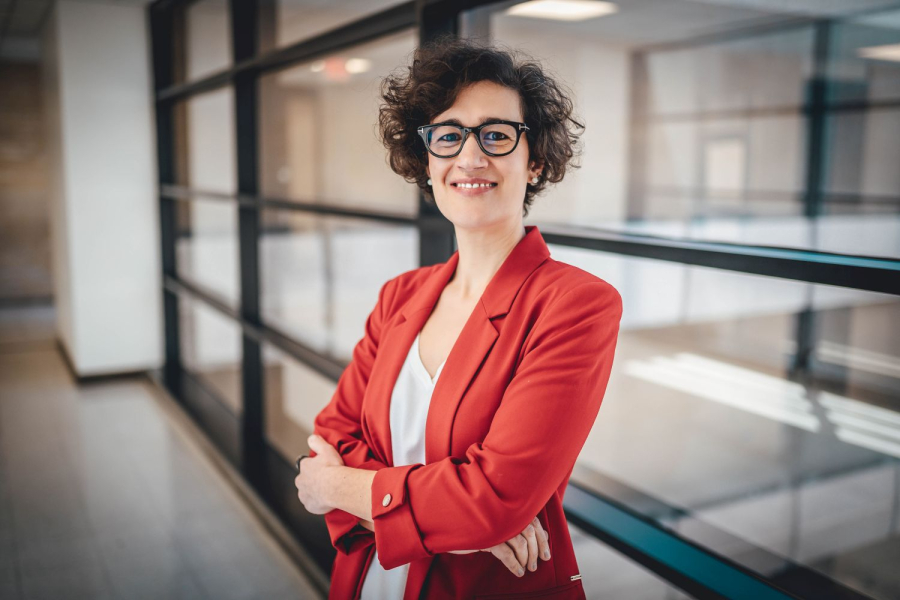For Marzia Cescon, the David C. Zimmerman Assistant Professor of Mechanical Engineering, the news in January that she had earned funding for her National Science Foundation (NSF) CAREER proposal came as a welcome surprise.
“I had forgotten about it,” she said, laughing, attributing this to a combination of the weather and the time of the year.
“I was informed of the award on a Thursday morning in January. The semester had just started that week and we were coming off a few days of below freezing temperatures, which are always challenging to handle in Houston. Safe to say, at that time, the NSF career was a remote thought. Receiving the notice of award, then, came really as a surprise, and a good wish for the New Year! I felt grateful for my mentors, past and current collaborators and, most importantly, my students.”
Cescon's proposal is “Data-Enabled Neural Multi-Step Predictive Control (DeMuSPc): a Learning-Based Predictive and Adaptive Control Approach for Complex Nonlinear Systems.” The award amount is $655,248.
She described her field of expertise as automatic control – technology that controls processes in order to achieve desired behaviors.
“We observe, and with the tools that we develop, we mathematically describe various phenomena occurring in nature and in our environment, and we use this knowledge to act upon and control these phenomena,” she said. “Automatic control is ubiquitous in our homes, cars and infrastructure. It is the quintessential multidisciplinary field, addressing seemingly unrelated problems with a unified theory.”
As examples of practical applications of this knowledge, Cescon pointed to the autopilot function of a Boeing 747, which follows a predetermined trajectory while adjusting to wind and currents. A biological form of automatic control is in the human body, such as temperature control based on workload or light control by a retina.
“My research is then concerned with the design of methods and tools to make a system behave in a desired way, while adapting to changing conditions and context, and ensuring safety at the same time,” she said. “We achieve that by harnessing data collected with available sensors from the system and its environment to enhance the traditional feedback control loop rooted in model-based design with learning enabled components. We apply the tools that we develop to the automated glucose regulation in people with type 1 diabetes and to the safe and assured autonomous operation of vehicles such as satellites and quadrotors drones.”
Cescon's interest in automatic control started while earning her B.Sc. in Information Engineering from the University of Padova in Italy.
“It was the third year of college and I remember noticing a poster in the hallway advertising the masters program in Control Engineering,” she said. “At that time, I knew nothing about the field, however from the poster it looked enough intriguing and esoteric. I decided to send my application in for the program to explore this field, and got hooked.”
Cescon earned her M.Sc. in Control Engineering from Padova, followed by her doctorate in Automatic Control from Lund University in Sweden. She credited her advisors there, along with support from her peers at UH and the hard work of her students, as direct reasons for her current success.
“There’s quite a long list of people who have had significant and positive influence on my academic path, over the years. In this regard, a statement of Isaac Newton comes to mind: 'If I have seen further it is by standing on the shoulders of Giants,'” she said. “In particular, at UH, I appreciate the unwavering support and enthusiasm of Dr. Karolos Grigoriadis, chairman of the Department of Mechanical Engineering, and the encouragement of the faculty members of the Intelligent and Autonomous Systems group.”
The CAREER award runs through August 2029. For more information on Cescon's research, visit her group's website.
